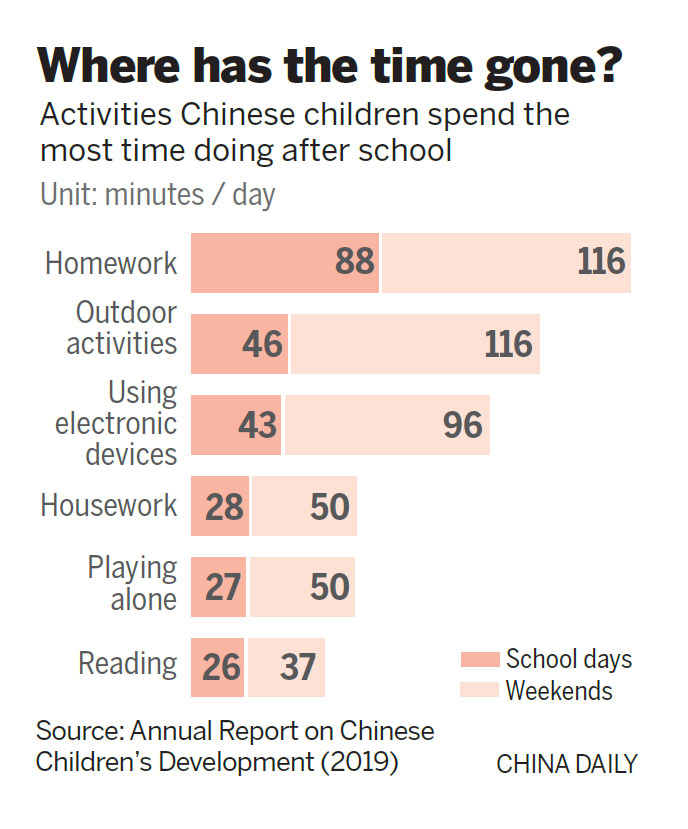Mobile devices stealing away childhoods, study finds
By WANG KEJU | China Daily | Updated: 2019-08-21 07:05

Children in rural areas spend more time gazing at handset and computer screens than their peers in cities.
A study by the China National Children's Center found that after the school day ends, youngsters nationwide now spend more time in front of mobile and computer screens playing games and chatting-over 43 minutes a day-than they do reading, which on average is about 26 minutes a day on weekdays. And the time spent with eyes glued to screens rockets to over 90 minutes a day on weekends.
The center's Annual Report on Chinese Children's Development (2019), released on Tuesday, noted a striking difference in screen time between children in the countryside and their counterparts in cities, with the average youngster in rural areas spending 20 percent more time using electronic devices.

The findings are based on a study that began in September involving 15,000 children from kindergarten to middle school. Respondents were spread across urban and rural areas in 10 cities, including Beijing, Guangzhou, Guangdong province and Duyun, Guizhou province.
Sun Hongyan, director of the childhood research institute at the China Youth and Children Research Center, said the internet and electronic devices used to be luxuries for rural children. But the increasing affordability of smartphones made it easier for migrant worker parents to provide electronic devices to children left behind in their hometowns.
According to the China Internet Network Information Center, the number of rural internet users reached 222 million by the end of last year, accounting for 26.7 percent of the nation's online population.
"It's been getting harder for parents to monitor a lot of what their kids are seeing and doing, especially when they are not around," Sun said. "At the same time, they're relying on the seeming safety benefit of being able to keep the kids at home with a device."
The report also found that children increasingly preferred playing electronic games and chatting online instead of other after-school activities such as reading and outdoor exercise. This was having a negative effect on their developing social skills, as well as impairing vision.
Sun Yunxiao, a specialist at the Chinese Association of Education, said schools should pay more attention to fostering children's internet literacy to make them "masters" rather than "prisoners" of the internet.
"It's nearly impossible to ban children from electronic devices since they are everywhere," Sun said. "But schools can provide more courses to help children fully realize both the positive and negative aspects of the internet."
























